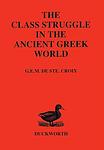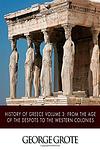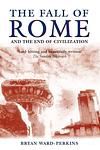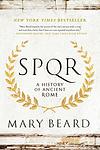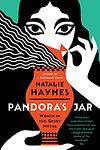The Greatest Roman, British "Nonfiction, Ancient History" Books of All Time
Click to learn how this list is calculated.
This list represents a comprehensive and trusted collection of the greatest books. Developed through a specialized algorithm, it brings together 305 'best of' book lists to form a definitive guide to the world's most acclaimed books. For those interested in how these books are chosen, additional details can be found on the rankings page.
Genres
Ancient History is a category of books that focuses on the study of human civilizations and societies that existed in the distant past, typically before the Middle Ages. This genre encompasses a wide range of topics, including the rise and fall of empires, the development of religions and cultures, the evolution of technology and science, and the political and social structures of ancient societies. Ancient History books provide readers with a glimpse into the lives and experiences of people who lived in a vastly different world than our own, offering insights into the origins of modern civilization and the forces that shaped our world today.
Countries
Date Range
Reading Statistics
Click the button below to see how many of these books you've read!
Download
If you're interested in downloading this list as a CSV file for use in a spreadsheet application, you can easily do so by clicking the button below. Please note that to ensure a manageable file size and faster download, the CSV will include details for only the first 500 books.
Download-
1. The Decline and Fall of the Roman Empire by Edward Gibbon
This historical work provides a comprehensive perspective on the fall of the Roman Empire, examining its decline from the height of its power in the second century A.D. through the fall of Constantinople in 1453. The author meticulously chronicles the empire's deterioration due to a variety of factors, including moral decay, economic crisis, military incompetence, barbarian invasions, and internal power struggles, while also offering insightful commentary on the broader implications for Western civilization.
The 370th Greatest Book of All Time -
2. De Rerum Natura by Lucretius
"De Rerum Natura" is a long didactic poem written in the first century BC, which explores Epicurean philosophy and the nature of the universe. The text delves into topics such as the nature of the gods, the atomic structure of the universe, human sensation and thought, and the fear of death. The author argues that understanding the physical world can free humans from superstition and fear, leading to peace of mind and true happiness.
The 491st Greatest Book of All Time -
3. A Study of History by Arnold J. Toynbee
"A Study of History" is an extensive 12-volume universal history, exploring the development and decay of world civilizations throughout the ages. The author proposes that civilizations rise and fall based on their responses to challenges, both physical and social. The book also puts forth the idea that religions play a crucial role in the rise of civilizations and that the failure of a civilization's creative power can lead to its decline. The work is renowned for its scholarly depth and its controversial theories about the cyclical nature of history.
The 982nd Greatest Book of All Time -
4. Lives of the Caesars by Suetonius
"Lives of the Caesars" is a historical narrative that provides a detailed account of the personal and public lives of the first twelve Roman emperors, from Julius Caesar to Domitian. The author presents a vivid depiction of their character, behavior, appearance, and private lives, as well as their political actions, military exploits, and administrative policies. The book is a valuable source of information about the Roman Empire's early days, offering a unique perspective on the power, corruption, and extravagance of the Roman elite.
The 1325th Greatest Book of All Time -
5. The City of God by Augustine
The book is a philosophical and theological masterpiece, written as a defense of Christianity after the sack of Rome in 410 AD. The author contrasts the earthly city, characterized by pride and love of self to the point of contempt for God, with the heavenly city, characterized by love of God to the point of contempt for self. He argues that though the earthly city may seem dominant in the present age, the heavenly city will ultimately triumph. The book is a profound exploration of history, philosophy, religion, and the human condition.
The 1643rd Greatest Book of All Time -
6. Histories by Cornelius Tacitus
"Histories" is a comprehensive account of the Roman Empire from 69-96 AD, a period marked by significant political turmoil. It provides an in-depth look at the reigns of four emperors: Galba, Otho, Vitellius, and Vespasian, along with the social and political upheavals of the time. The narrative also covers the Jewish rebellion and the burning of the Jerusalem Temple, offering a rich historical context of the period. Despite some gaps in the record, it remains a crucial primary source for understanding this era of Roman history.
The 1803rd Greatest Book of All Time -
7. Germania by Cornelius Tacitus
"Germania" is a historical and ethnographic work that provides a detailed description of the lands, customs, and tribes of the Germanic people in the first century AD. The author, a Roman historian and senator, offers a comprehensive account of the geography, anthropology, social institutions, and military practices of the Germanic tribes, often comparing their culture and values to those of the Romans. The work is considered a valuable source of information about the ancient Germanic tribes, despite its possible biases and inaccuracies.
The 2333rd Greatest Book of All Time -
8. Titi Livi Ab urbe condita libri by Livy
This historical work offers a comprehensive narrative of the history of Rome, from its mythical origins to the reign of the Roman Emperor Augustus. The author chronicles the major political, military, and social events of the Roman Republic, including the founding of the city, the establishment of the Republic, the Punic Wars, and the rise of Julius Caesar. The book is a significant source of information about the early history of Rome and is often considered one of the most important works of Roman history.
The 2400th Greatest Book of All Time -
9. Catiline Orations by Marcus Tullius Cicero
"Catiline Orations" is a series of speeches given by a renowned Roman statesman, which were aimed at exposing and condemning the conspiracy led by Lucius Sergius Catilina. The speeches, delivered in the Roman Senate, are a masterful display of oratory skills and political acumen, as the statesman successfully manages to turn the Senate against Catiline, ultimately leading to his downfall. The book offers an in-depth study of these speeches, providing valuable insights into Roman politics, rhetoric, and the art of persuasion.
The 3093rd Greatest Book of All Time -
10. Natural History by Pliny (the Elder)
"Natural History" is an extensive work of literature that provides a comprehensive look at the knowledge of the natural world during the Roman era. The book is divided into 37 volumes, each focusing on different aspects such as geography, anthropology, zoology, botany, and mineralogy. The author's curiosity and fascination with the world are evident in his detailed observations and descriptions. The book also includes discussions on art, sculpture, and various other topics, providing a rich and detailed snapshot of the Roman understanding of the world.
The 3202nd Greatest Book of All Time -
11. The Greeks And The Irrational by E.R. Dodds
In "The Greeks and the Irrational," the author explores the concept of irrationality within ancient Greek culture, challenging the traditional view of the Greeks as pioneers of rational thought. The book delves into various aspects of Greek society, including religion, philosophy, and literature, to uncover the presence and acceptance of irrational elements such as divine inspiration, prophecy, and mystical practices. By examining these aspects, the work argues that irrationality was integral to the Greek worldview and that acknowledging this can lead to a more nuanced understanding of ancient Greek civilization and its contributions to Western thought.
The 5947th Greatest Book of All Time -
12. Themis by Jane E. Harrison
"Themis" is a scholarly work that delves into the origins and development of ancient Greek religion, focusing particularly on the social aspects of ritual and myth rather than the theological specifics. The book examines the concept of Themis, traditionally associated with divine order and law, and explores how this concept relates to the collective consciousness and practices of early Greek society. Through a detailed analysis of rituals, festivals, and myths, the author argues that Themis plays a central role in creating and maintaining social order and cohesion among the ancient Greeks. The study draws extensively on literary and archaeological sources to reconstruct the religious atmosphere of ancient Greece, providing insights into how early Greeks understood their world and the divine forces that shaped it.
The 5947th Greatest Book of All Time -
13. The Class Struggle In The Ancient Greek World by G.E.M. de Ste. Croix
"The Class Struggle in the Ancient Greek World" is a comprehensive historical analysis that explores the dynamics of class conflict from the earliest times in ancient Greece up to the Roman Empire. The book delves into how social and economic factors shaped class relations and examines the extent to which class struggle influenced political developments and historical outcomes in the ancient world. Through meticulous examination of sources and evidence, the work challenges traditional views of ancient society by highlighting the significance of class divisions and conflicts as central elements in the historical progression of the Greek and Roman periods.
The 6438th Greatest Book of All Time -
14. Catiline's War, The Jugurthine War, Histories by Sallust
This book is a combination of three works by a Roman historian and politician, focusing on the political and military events of the late Roman Republic. It first covers the conspiracy led by Catiline in 63 BC, then shifts to the war against Jugurtha in North Africa, and finally provides a fragmentary history of Rome from 78-67 BC. The author uses these events to critique the moral decay of Rome, highlighting the corruption, greed, and ambition that he believed led to the fall of the Republic.
The 6513th Greatest Book of All Time -
15. History Of Greece by George Grote
This book provides a comprehensive analysis of Greek history, from its earliest periods in ancient times through the Hellenistic era. The author meticulously details the political, social, and cultural developments of various Greek city-states, emphasizing the democratic processes of Athens and the military prowess of Sparta. Through a critical examination of sources and a narrative enriched by philosophical and ethical insights, the work explores the rise and fall of Greece, its interactions with neighboring civilizations, and its lasting impact on Western thought and civilization.
The 6745th Greatest Book of All Time -
16. The Fall Of Rome by Bryan Ward-Perkins
"The Fall of Rome" presents a compelling argument that the decline of the Roman Empire was both a rapid and devastating event, challenging the notion of a gentle transformation. The author uses archaeological evidence and material culture, such as pottery shards and coinage, to illustrate a significant decrease in economic vitality and urban life following the fall of Rome. This decline led to dramatic reductions in general living standards and the loss of sophisticated crafting and building techniques. The book effectively counters the idea of a seamless transition to the early Middle Ages, instead portraying a period marked by turmoil and hardship.
The 7129th Greatest Book of All Time -
17. On The Gods by Marcus Tullius Cicero
The book is a philosophical treatise that explores ancient theological concepts and the nature of the gods, presenting a critical examination of various religious beliefs and practices of the time. The author, a Roman statesman and scholar, engages in a series of dialogues that delve into the existence and attributes of the divine, contrasting the Epicurean view of detached gods with the Stoic belief in a providential order. Through rigorous argumentation and eloquent rhetoric, the work seeks to understand the role of the gods in human life and the universe, while also reflecting on the implications of piety, fate, and the pursuit of happiness within the context of Roman religion and philosophy.
The 7168th Greatest Book of All Time -
18. A History of the World in 100 Objects by Neil MacGregor
This book offers a unique perspective on world history, telling the story of humanity through the examination of 100 man-made objects. The author, a museum director, uses items from the British Museum, ranging from a 2 million-year-old Olduvai stone cutting tool to a contemporary credit card, to explore various themes such as trade, religion, art, science, and politics. The book provides a fascinating lens through which to view the evolution of human civilization.
The 8335th Greatest Book of All Time -
19. The Origins Of European Thought by R. B. Onians
"The Origins of European Thought" explores the intellectual history of ancient Europe, focusing on how the Greeks and Romans conceptualized the mind, soul, and body, and how these ideas were influenced by earlier cultures. The book delves into a variety of sources, including philosophy, linguistics, and mythology, to trace the development of European thought from its prehistoric roots to classical antiquity. It examines the metaphors and linguistic expressions used by these ancient civilizations to discuss psychological and physiological phenomena, revealing a deep connection between language and cultural worldview.
The 8726th Greatest Book of All Time -
20. Rubicon by Tom Holland
This historical narrative delves into the tumultuous period of the late Roman Republic, chronicling the rise and fall of some of its most iconic figures, such as Julius Caesar, Cicero, and Augustus. The book captures the political intrigue, military campaigns, and civil unrest that led to the demise of the Republic and the birth of the Roman Empire. Through vivid storytelling, it explores the complex interplay of personalities and events that shaped the course of Western civilization, offering a detailed look at the power struggles and societal transformations of ancient Rome.
The 9095th Greatest Book of All Time -
21. Women & Power: A Manifesto by Mary Beard
This book is a compelling exploration of the history of women in power, examining the cultural underpinnings of misogyny from ancient times to the present day. It argues that women have always been excluded from positions of power, and that this exclusion is deeply ingrained in our collective psyche. The author uses examples from history, literature, and contemporary politics to illustrate her points, challenging readers to reconsider their own assumptions about gender and power. She also offers insights into how we can break down these barriers and create a more equitable society.
The 9708th Greatest Book of All Time -
22. Spqr by Mary Beard
This book is a sweeping historical narrative that delves into the heart of ancient Rome, exploring its rise from an insignificant village in central Italy to a world-dominating superpower that lasted for centuries. The author, a renowned classicist, examines not just the famous emperors and battles, but also the lives of the everyday people, the political and social structures, and the complexities of Roman culture. Through a blend of historical analysis, anecdotal evidence, and a fresh perspective, the book challenges preconceived notions about Roman history and provides a nuanced understanding of how this vast empire's legacy continues to influence the modern world.
The 10023rd Greatest Book of All Time -
23. Pandora's Jar by Natalie Haynes
"Pandora's Jar" delves into the world of Greek mythology from a fresh perspective, focusing on the often-misrepresented stories of women within these ancient tales. The book reexamines the narratives of figures such as Medusa, Helen of Troy, and the titular Pandora, challenging the traditional views that have frequently cast them as villains or victims. Through a combination of scholarly analysis and engaging storytelling, the author brings to light the complexities of these female characters, exploring their roles and significance in a way that resonates with contemporary discussions on gender and power. The book serves as both a reclamation of these mythological women's stories and a critique of how their legacies have been shaped by centuries of retelling.
The 10412th Greatest Book of All Time
Reading Statistics
Click the button below to see how many of these books you've read!
Download
If you're interested in downloading this list as a CSV file for use in a spreadsheet application, you can easily do so by clicking the button below. Please note that to ensure a manageable file size and faster download, the CSV will include details for only the first 500 books.
Download











